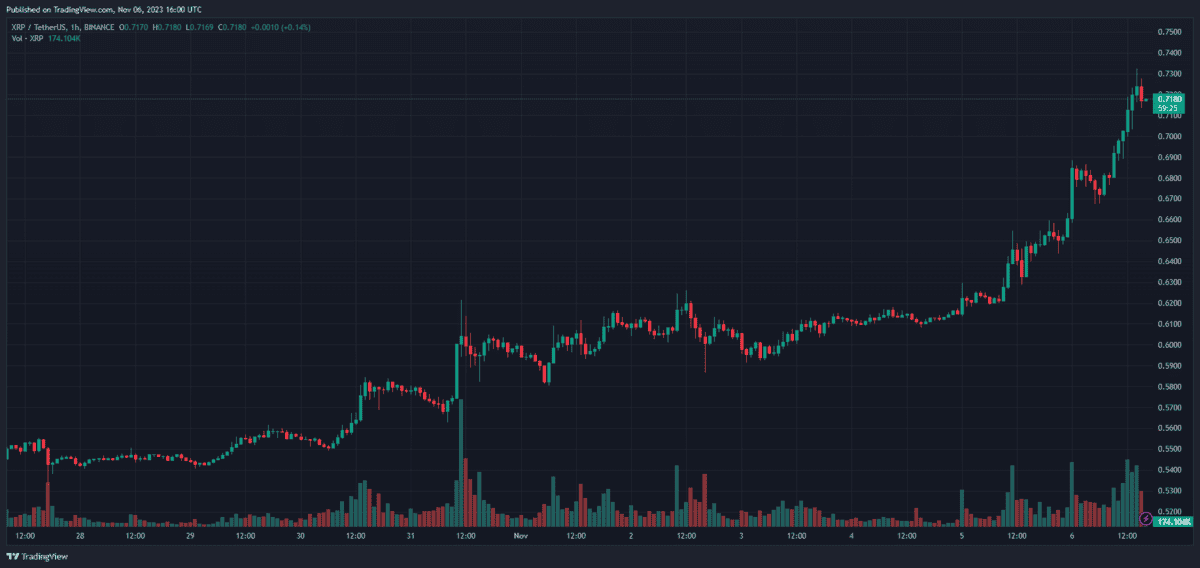XRP has witnessed a substantial surge over the past 24 hours, emerging as the best-performing cryptocurrency among the majors.
While Bitcoin (BTC) and Ethereum (ETH) maintained a stable position, XRP prices soared by more than 11% before experiencing a slight retraction on Monday.
According to CoinGecko data, the trading volume doubled in a day, jumping from Sunday’s $1 billion to an impressive $2 billion. Currently, XRP is trading at 69 cents, overtaking BNB to become the fourth-largest token by market capitalization.

A closer examination of trading patterns indicates that the price hike was predominantly driven by spot trading activities, as liquidations on XRP-tracked futures surpassed the $4.4 million mark. This substantial figure suggests that the application of high leverage by traders may have played a role in the upward price trajectory.
The sudden upturn appears to lack an immediate catalyst, yet market sentiment has likely been influenced by two recent favorable developments for Ripple, the payment technology company behind XRP. Last week, Ripple achieved significant milestones by securing approvals to operate and provide services in both Georgia and Dubai.
The Dubai Financial Services Authority (DFSA) gave the green light to XRP under its virtual assets regime.
This approval permits licensed firms within the Dubai International Financial Centre, a prestigious financial sandbox, to offer XRP as a part of their cryptocurrency services to clients. In a parallel stride, Ripple announced its collaboration with the National Bank of Georgia (NBG) on the Digital Lari (GEL) pilot project, utilizing Ripple’s platform for central bank digital currencies (CBDCs).
This platform, already employed by the governments of Hong Kong and Taiwan since its launch in May, allows institutions to oversee the complete life cycle of a CBDC, encompassing its creation, distribution, redemption, and even the decommissioning process.
Central banks are empowered to issue CBDCs for both wholesale and retail use, with the added capability for offline transactions, signaling a significant evolution in digital currency management and use.